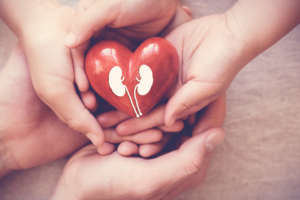There are many issues that need to be addressed fairly quickly after someone passes away. The decedent’s body is usually the first issue that needs to be addressed. The immediate question when someone passes away is: Are they an organ donor? And if the answer is yes, then the follow up questions are: Donating what organs? To whom? And for what purpose(s)?

Organs can be donated to specific people, to organizations, to specific types of people, and they can be specified as being donated for transplant, therapy, education or research, or any combination thereof. All of these anatomical gift choices can be laid out by the decedent themselves while they are still alive in a document called an advanced health care directive. This document also names the person or persons in charge of decision making regarding the decedent’s body after death. A decedent may also register for organ or whole-body donations through appropriate organizations or medical schools. The most common way Californians choose to donate their organs is through the Donate Life California Registry at the Department of Motor Vehicles (DMV). This results in the pink dot on a person’s driver’s license that indicates they are an organ donor. Interestingly enough, if a decedent registers through the DMV and then later completes an advanced health care directive, they must explicitly revoke the DMV registration if they no longer want to donate organs. Of course, they should unregister too, but merely checking “no organ donation” on an advanced health care directive will not override the DMV registry.
Unless a decedent expressly states a refusal to donate organs, other individuals can authorize the donation of the decedent’s organs. Those individuals, in order of priority, are: agents under a power of attorney (typically and advanced health care directive), the decedent’s surviving spouse, adult children, parents, adult siblings, adult grandchildren, grandparents, adults who helped care for the decedent during their lifetime, the decedent’s guardian or conservator, and any other person or third party who has authority, such as a coroner, medical examiner, or hospital administrator, so long as a reasonable effort has been made to find any of the prior individuals named. In addition, if the decedent was known to have religious beliefs that did not support anatomical gifts, only the decedent is allowed to authorize the donation by executing documents prior to death. Many people have strong personal beliefs regarding organ donation and should lay out those beliefs in an advanced health care directive or will so that their personal wishes regarding their bodies are carried out accordingly.
After any anatomical gifts are made, decisions will need to be made about burial or cremation. Burials can be done naturally, or with embalming. There are various reasons to do both, and they may depend on whether there will be an open casket, the decedent’s environmental views, cost, or family preference. Additionally, a plot will need to be chosen, a casket, and a headstone or grave marker designed. There are multiple options and a lot of decisions that can be made with the help of a good mortuary or funeral home. We have found it is best when our clients plan in advance, either in estate planning documents, or by prepaying a funeral home, so that their loved ones do not need to guess at the decedent’s wishes.
The alternative to burial is cremation. Cremation’s popularity has dramatically increased over the years. It is significantly less expensive than burial, it can be viewed as easier with less ancillary decisions to make, and it is less geographically permanent in a world today where people are not as likely to put down roots for multiple generations. People who want to be cremated can also have open caskets like people who are being buried, which has allowed for some religions to approve of the process, most notably the Catholic Church.
Beginning in 2020, Californians will now have an additional cremation choice to make: standard cremation or water cremation? Standard cremation involves heating a body to 1500 to 1900 degrees for a couple of hours until all that remains is bone fragments, which are then crushed to produce the ashes or cremains. The ashes are then returned to the family, or designated person, to be scattered or interred.
Water cremation, which is new in 2020 for California, is also known as alkaline hydrosis, and involves dissolving the body in an alkaline solution for about four hours. All that remains are the bones, which are also crushed into “ashes” or cremains. Water cremation is available in over a dozen states and is gaining popularity as it is seen as more environmentally friendly because there are no emissions as compared to standard cremation. Current generations are definitely looking for ways to reduce their carbon footprint, even after death.
Having a pre-written plan in place for these decisions can reduce the stress on your loved ones as well as make sure that your wishes are properly communicated so that they can be carried out. This can bring a great peace of mind for you as well as your loved ones.
[Ad] Do you need help with your California estate planning now? We can help. Together our Absolute Trust Counsel team will take a look at your situation and your specific needs to develop a strategic plan to help protect you and your loved ones. Here’s a link to schedule your free discovery today > https://absolutetrustcounsel.com/scheduling/.
Looking for more information on probate? Visit our probate resource page at https://absolutetrustcounsel.com/practice-areas/probate/ for guidebooks, podcasts, videos, and more!

